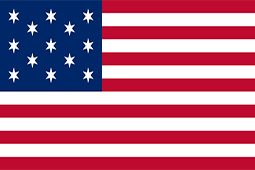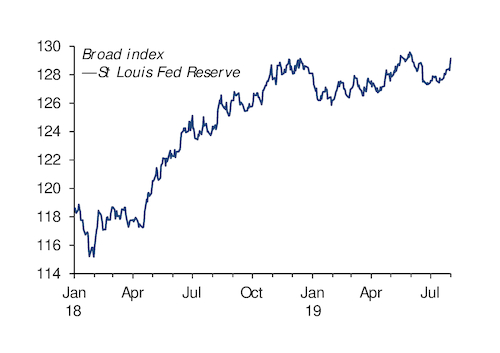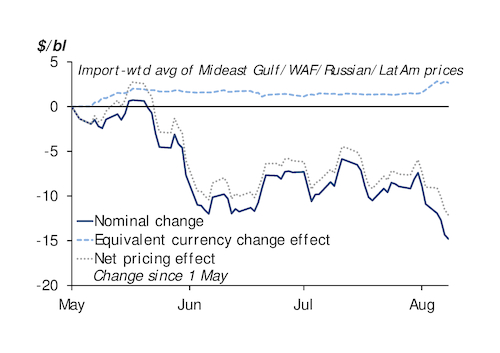
Macroeconomic angst raise alarms

Increasingly downbeat macroeconomic variables amid the escalating US-China trade war and plummeting crude prices are undermining efforts by Opec and its non-Opec partners — collectively known as Opec+ — to rebalance and stabilise global oil markets.
Saudi Arabia has reached out to its Opec and non-Opec partners to seek ways to stem this month's steep decline in oil prices. "Saudi Arabia and other producers will not allow prices to fall further," an Opec delegate says, adding that a number of options are being considered. But options look thin on the ground.
Economic headwinds are weighing heavily on oil market sentiment, despite sharply lower Opec production, modest shale oil output growth and declining inventories, according to a Saudi official.
China's unexpected move to devalue the yuan has added a new level of uncertainty to the trade war with the US, unsettling markets. The escalation portends a further downgrade in the global economic outlook, and the prospect of weakening oil demand growth for this year and next. Given all the unpredictability, forecasts for next year's global GDP growth are in a wide 2.7-3.5pc range, which implies around 500,000 b/d of uncertainty for 2020 oil demand growth, according to Argus estimates.
"Another significant issue, in my view, is the value of the dollar," a Saudi official says. The rise in the dollar, which rankles US president Donald Trump as much as the oil producers, means more expensive dollar-denominated crude could dampen demand, especially in emerging markets. Historically, Opec has implemented multiple production cuts when macro variables overwhelm the market, including during the financial crisis of 2008-09. "We are not at that threshold yet," the official says.
Supply protection
Concerns over the state of the global economy overshadow the implications for supply from continuing tensions in the Mideast Gulf. Iran's Islamic Revolutionary Guard on 4 August seized a small boat carrying what Tehran describes as "smuggled fuel" in the Mideast Gulf. This was the second such operation in the space of a month. Shipping groups are urging safe passage and freedom of navigation in the strait of Hormuz. European Community Shipowners' Associations secretary-general Martin Dorsman calls for EU member states "to work with Iranian authorities to de-escalate the situation".
The UK has abandoned calls for a Europe-led maritime protection force in favour of joining the US-proposed international coalition for protecting oil shipping in the strait. But the Royal Navy is not going to boost its presence in the region beyond the two vessels engaged in escorting UK-flagged tankers. The about-face follows the recent change of government in London.
Meanwhile, Iran pours scorn on the US effort, which so far has only the UK as a participant. "What is this international coalition supposed to be for?" foreign minister Mohammad Javad Zarif says. "The US is responsible for the tensions in the Persian Gulf. He who causes the fire cannot also be the firefighter."
Riyadh is yet to formally join the maritime coalition, despite US lobbying. But Saudi oil minister Khalid al-Falih, who visited Washington on 6 August, pledged to work with the US "to ensure the security of global energy supplies". The US will continue to co-ordinate Iran sanctions policy with Riyadh to ensure "world oil markets remain well supplied to offset disruptions, especially in light of Iran's aggressive efforts to destabilise them", US energy secretary Rick Perry said after meeting al-Falih.




Trump weighs using $2 billion in CHIPS Act funding for critical minerals

Codelco cuts 2025 copper forecast after El Teniente mine collapse

Electra converts debt, launches $30M raise to jumpstart stalled cobalt refinery

Barrick’s Reko Diq in line for $410M ADB backing

Abcourt readies Sleeping Giant mill to pour first gold since 2014

Nevada army depot to serve as base for first US strategic minerals stockpile

SQM boosts lithium supply plans as prices flick higher

Viridis unveils 200Mt initial reserve for Brazil rare earth project

Tailings could meet much of US critical mineral demand – study

Kyrgyzstan kicks off underground gold mining at Kumtor

Kyrgyzstan kicks off underground gold mining at Kumtor

KoBold Metals granted lithium exploration rights in Congo

Freeport Indonesia to wrap up Gresik plant repairs by early September

Energy Fuels soars on Vulcan Elements partnership

Northern Dynasty sticks to proposal in battle to lift Pebble mine veto

Giustra-backed mining firm teams up with informal miners in Colombia

Critical Metals signs agreement to supply rare earth to US government-funded facility

China extends rare earth controls to imported material

Galan Lithium proceeds with $13M financing for Argentina project

Kyrgyzstan kicks off underground gold mining at Kumtor

Freeport Indonesia to wrap up Gresik plant repairs by early September

Energy Fuels soars on Vulcan Elements partnership

Northern Dynasty sticks to proposal in battle to lift Pebble mine veto

Giustra-backed mining firm teams up with informal miners in Colombia

Critical Metals signs agreement to supply rare earth to US government-funded facility

China extends rare earth controls to imported material

Galan Lithium proceeds with $13M financing for Argentina project

Silver price touches $39 as market weighs rate cut outlook

















